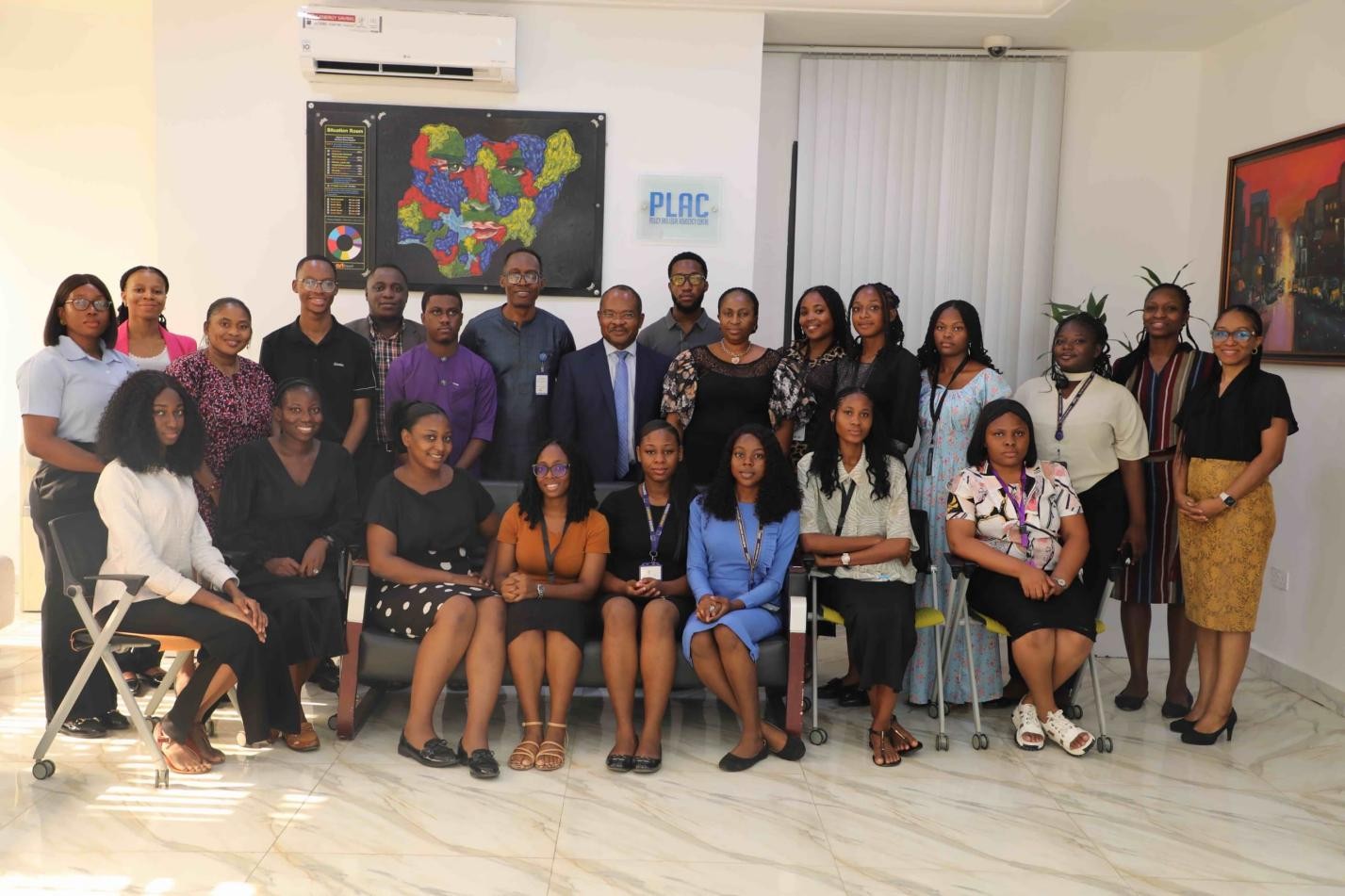| Adebayo Daniel

Introduction
Purpose of the trip: Practical exposure to the reality of the Nigerian political system
Organizing department/faculty- Department of Political Science and Public Administration
Date and duration: March 3- 9, 2025
Number of participants: 16
Objectives
- To enable students observe real-world governance structures and apply classroom concepts.
- To help students reflect on their important roles as citizens, to foster responsible community membership.
- To foster exposure to professional opportunities and academic networking.
Itinerary and Activities
March 3rd, 2025
Institution: Policy and Legal Advocacy Centre (PLAC)
Welcome remarks by the Executive Director (Mr Clement Nwanko), a lawyer and human rights activist. Other insights about what the organization does and its significant influence in amending the Electoral Act 2022 and the alterations made in the 1999 Nigerian Constitution.
The interactive session was insightful and students were able to ask questions about the relationship of the organization with the National Assembly and how it collaborates with the legislative arm.
Students received copies of publication such as the Constitution of the Federal Republic of Nigeria 1999, Electoral Act 2022, A Guide to the Nigerian National Assembly, A Toolkit on Legislative Engagement and Advocacy and some others.
March 5th, 2025
Institution: The National Institute for Legislative and Democratic Studies (NILDS)
The Representative of the Director-General (Prof. Abubakar Sulaiman) welcomed the delegation and gave a brief overview of what the institute does as well as the academic programmes available to students at the postgraduate level. In addition, a presentation titled “The role of NILDS in democracy and legislation” was delivered by Dr Chris Ngara.
Students had an interactive session with the presenters on drafting of bills, support to the parliament at the regional and sub-regional levels as well as research activities. They also took a tour of the library.
March 6th, 2025
Institution: The Independent National Electoral Commission (INEC) and the Electoral Institute
Students were welcomed by the Secretary of the Commission (Mrs Rose Omoa Oriaran-Anthony) at the INEC premises. She encouraged students to be involved in Nigerian politics and also interact with key management staff that will interact with them at the Electoral Institute.
At the Electoral Institute, students were opportuned to interact with Prof. Sanni Ibrahim (Director of Research and Documentation), the Director and Deputy- Director of Training, Voter Education and Publicity and the Director of Procurement. The interactions included the participation of youths in politics and electoral processes. These discussions sparked an interest in the student to start a club on campus that will focus on voters’ education and political participation. Students also received copies of the Manual for election officials and other useful publications that will enhance their understanding of the electoral processes in Nigeria.
March 7th, 2025
Institution: National Human Rights Commission
The Executive Secretary of the Commission was ably represented and warmly welcomed the students. Departments such as Civil and Political Rights, Women and Children, Vulnerable groups etc had representatives who had short presentations on what their department does and the overall responsibility of each citizen to make a report when they hear or see that someone’s right is being trampled upon.
The students had an intensive interactive session with these representatives. Also, useful publications given to the department were received by Prof Ngozi Nwogwugwu.
Key Observations
· The experiential learning has boosted their interest in politics.
· Increased awareness on concepts and observations of governance mechanisms.
· Strengthened critical thinking, team collaboration and problem-solving skills.
Conclusion
The trip bridged the gap between theoretical knowledge and real- world experiences. It significantly motivated and revitalized interests in politics and specifically Nigerian politics. Future academic field trips should be encouraged and improved for greater impact.
SDG Alignment:
SDG 4: Quality Education: Bridging theoretical knowledge with real-world experiences.
SDG 10: Reduced Inequalities: Emphasizing human rights protection and inclusive governance.
SDG 16: Peace, Justice & Strong Institutions: Deepening students’ understanding of democratic governance and electoral systems.